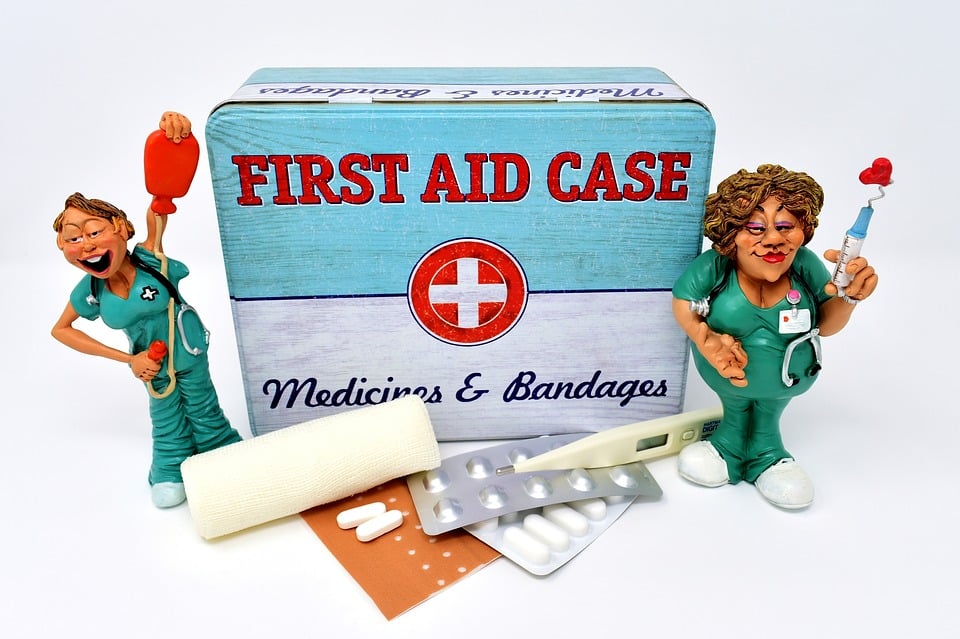Whether or not you went through the Boy Scout program, its motto, “Be Prepared,” should be something that you live by. Preparedness is a key aspect of being successful in all areas of life, but it shines especially bright when it comes to disasters. The age-old saying, “when you fail to plan, you plan to fail,” is altogether too true.
If you are a business owner or a regular Joe just trying to make a living, preparedness gives you a huge advantage over those who aren’t ready for a disaster. Having an emergency plan ready can save your life and the lives of your family members when those emergencies come about. Making an emergency plan is not a one-and-done venture, though. Don’t hurry out and gather what you need and never revisit your plan. On the contrary, you need to regularly refresh your emergency plan with current items and information.
Sustenance
- Water: Keep at least one gallon per person per day of water on hand, and plan for three days. This will help you cook, clean, stay hydrated, and keep things sanitized. Water is your number one essential, so don’t overlook it. If anything, it’s better to be a little over-prepared in this area.
- Food: Regularly rotate through at least three days’ worth of non-perishable food. Canned foods are a good choice because they tend to have a long shelf life, but you can also buy freeze-dried meals that come pre-packaged in a variety of flavors. These take water and heat to rehydrate, but they usually have a shelf life of about 10 years, so you don’t have to rotate them quite as often. It’s also a good idea (and morale booster) to include some sweet snacks and candy to help lift the spirits. Whatever you choose to stock up on, make sure to pack a manual can opener.
Medical
- First-aid kit: Not all disasters are life-threatening, but a first-aid kit is a necessity. Keep it stocked with bandages, instant compresses, tape, gauze, antibiotic ointment, soap, gloves, and pain relievers. These will come in handy when the need arises.
- Prescription drugs: You can’t necessarily plan to keep extra prescription drugs in your emergency preparedness kit, but you should keep necessary prescription drugs in an easily accessible location, so you can grab and go quickly.
Other
- Chargers for electronics
- Flashlights
- Batteries
- Multi-purpose tools
- Sanitation items
- Maps
- Activities, games, and food for children (as applicable)
- Work gloves
- Extra clothes
- Blankets or sleeping bags
- Hand-crank radios
- Cash
Documentation
Certain documentation will be helpful to you in the event of an emergency. It’s less likely that you’ll need to evacuate entirely and more likely that you will have to hunker down in your own home, but having all of these documents in one place makes it easier to grab them quickly. Consider making an emergency binder that has all of this sensitive paperwork and your disaster plan in one place.
- Identification documents: Keep recent photographs and identifiable information on each family member. Include birth certificates, marriage certificates, medical information, and passports.
- Insurance policies: Keep your homeowners, flood, car, property, health, dental, and life insurance policies in the same place.
- Contact information: Write out the contact information for various family members that you might need to get ahold of in the event of an emergency.
Disaster Plan
This part of your emergency preparedness kit requires all of your family to be in one place during the planning stage. Go through various disaster scenarios and come up with a written plan for communicating and regrouping. It’s impossible to prepare for every scenario, but memorizing a common emergency contact number and address (you might not have access to your phone’s contacts if the power is out), deciding on a meeting place, and knowing how to get from point A to point B will be beneficial to all members of your family.
Additionally, you should practice getting in and out of your house during emergency drills. Know the escape routes, and practice taking shelter or evacuating in the event of fire, flooding, tornado, or hurricane. Type up your disaster plan and keep it in a binder that you regularly revisit.
When a disaster strikes your house such as fire, typhoon or earthquake, there are things that you must prepare to ensure survival. You cannot tell until when the onslaught will be that is why you must prepare food, water, first aid kits, prescription drugs, identification drugs, insurance documents, and recovery plans must be secured all the time. This infographic will make you prepared for the worst to come.

![7 Things You Need When Disaster Strikes [infographic] 7 Things You Need When Disaster Strikes [infographic]](https://disastercompany.com/wp-content/uploads/2022/04/7-Things-You-Need-When-Disaster-Strikes-scaled-1.jpg)
